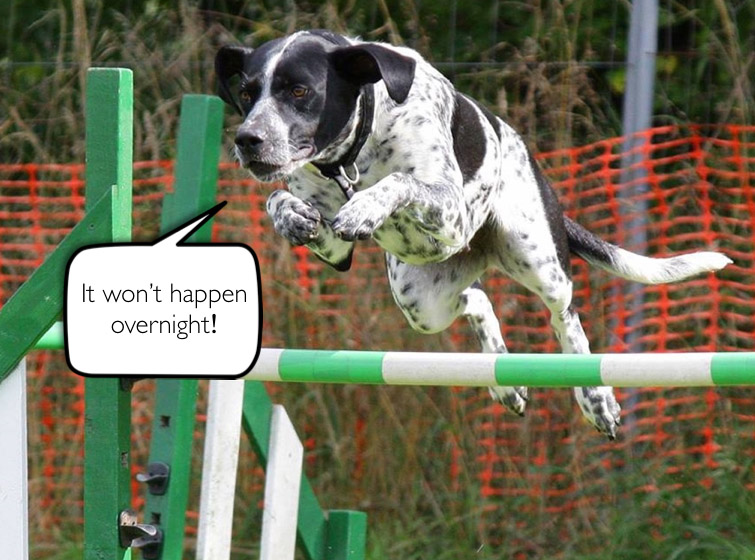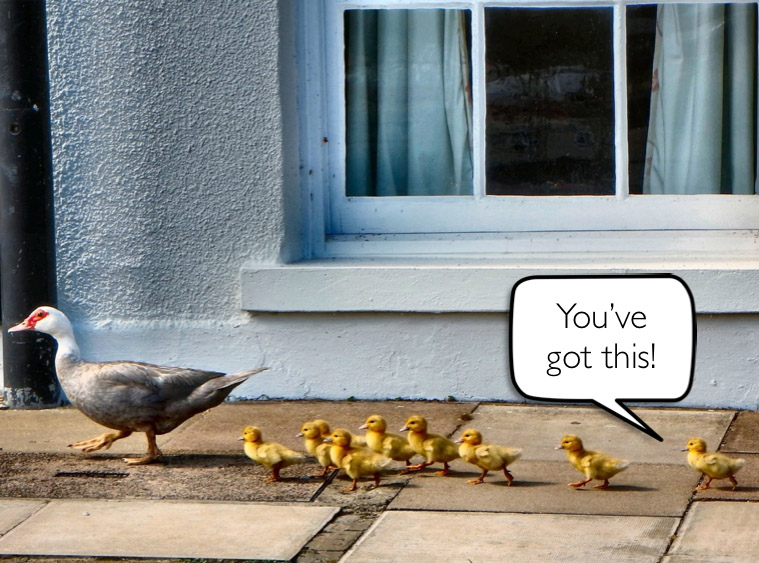We live in a world where we are conditioned to want instant results with minimal effort. The expectation is that we can have anything we want, right now. Success included.
This is perhaps why Australians spend approximately $2 billion a year on lottery tickets. Every time someone purchases a lotto ticket, they’re buying into the dream of instant success and life on easy street.
But what are the chances of actually winning the lottery?
According to mathematician and statistician Professor Peter Adams the chances of winning division one lottery with a single entry are …
One in 45 million
Take a moment to let that sink in. Yep. It’s kind of depressing.
Professor Adams explains why he isn’t rushing out to buy a lotto ticket anytime soon. He states:
“The reason that the prize has jackpotted for so many weeks is because it is just so hard to win. So for weeks and weeks not a single person in the whole country has won division one and that’s why it jackpots but the marketing says that’s a good thing … but what they don’t say is the only reason it’s a big prize is because it’s too darn hard to win!”
Given the terrible odds of winning, you need a better strategy for life success. Here’s what I suggest …
Embrace the idea of consistent effort
Let’s face the reality: behind the vast majority of overnight successes are years of hard slog. How many years of work are we talking?
Seth Godin argues that it takes about 6 years of hard work to achieve overnight success. But that’s just his opinion.
What does the research tell us about success?
Research has found it takes about 10,000 hours of deliberate practice to achieve mastery in a particular area.
Achieving any goal is the result of small habits performed on a regular basis. Little by little. Step by step. All those little steps add up to something really solid over time.
But here’s the problem we currently face …
We have become too impatient
In a fast paced, instant results world, things that take time to master aren’t so appealing.
Here’s what our lives can look like:
I’m not having a go at you. I’m a product of this instant results world, too. I’m prone to frequent bouts of unrealistic expectations.
But as Seth Godin writes:
“ … some people have trained themselves to believe that the only kind of success worth having is overnight success. That if you don’t hit #1 the first week, you’ve failed …”
Godin suggest that instead of embracing overnight success, we embrace the idea of being “an overnight failure, but one that persists”.
Persistence is key: Think process (not product)
Very few people would ever consider hiring a taxi to finish a marathon. If they did, at some level they’d know that they’d be cheating themselves. Why? Because it’s the process that matters most.
Similarly, if you’re after overnight/instant success, you’ve missed the point.
You see, it’s the years of challenge, struggle and hard work that make the success so sweet when it finally comes. How do I know? From personal experience.
It took 7 years to complete my PhD.
I know, that’s a long time, right?
Let me tell you, those 7 years weren’t all ponies, kittens and rainbows.
There were times when I wanted to call it quits. But I pushed through the pain and discomfort and completed my thesis.
And you know what? I’m so glad I didn’t give up.
My brain grew (as did my confidence levels).
I developed an awesome set of skills.
I learnt that good work takes time.
I discovered the power of grit.
I can now look at my thesis and say, “I finished that beast!” (and if I could do that, what else is possible?). But best of all, I learnt to enjoy the process of whatever I do.
As Tara Moss once said:
“Give yourself the mental freedom to enjoy the process. Because the process is a long one.”
Moving forward in tiny steps
Habits expert James Clear says there are three steps to becoming pro:
1. Decide what you want to get good at.
2.Set a schedule for your actions.
3. Stick to your schedule for one week.
In relation to point 3, James Clear states:
“Stop thinking about how hard it will be to follow a schedule for a month or a year. Just follow it for this week. For the next 7 days, don’t let distractions get in the way . . . Next week, start again.”
To sum up
Next time you consider buying a lotto ticket, resist. Instead, ask yourself the question, “What small action can I take today towards my goal?” Do it for a week and then rinse and repeat! Remember, all those little bits add up to something really solid over time.






